Curriculum Intent
Students will acquire a good understanding of how to perform, compose and analyse a wide range of music. They will have the opportunity to explore musical meaning and purpose. All students will have the opportunity to take up an instrument in years 7-9 despite any disadvantage through funded instrumental lessons. The goal is for all students to be proficient in keyboard skills, strengthening their ability to compose for a variety of instruments and giving them a practical understanding of harmony. By studying a broad and diverse range of music, students progress towards gaining the musicianship skills they need for GCSE music and a variety of careers in music. While practising different approaches to composition throughout the course, they will become proficient in the use of a range of music software packages.
Student Learning Journey
In line with the Model Music Curriculum at key stage 3 students continue their journey towards building a universal foundation of musical understanding. We aim to develop a fluent approach to what students already know from KS2 and provide a route to success in GCSE music and play a part in the musical life of the school community. Students will follow a sequence of learning that increases their development of musicianship skills in Listening, Composing, and Performance.
In Year 7 students will focus on
Music theory - Treble clef , Bass clef & duration
Composition - Composing Ostinato and simple melody lines
Performance - Reading of the treble and bass clef, playing basic chords
In Year 8 students will
Music theory - more complex duration for example dotted notes and understanding time signatures
Composition - Improvisation and rhythmic composition
Performance - Playing the keyboard hands together and building of playing chord progressions
By Year 9 students will be able to
Music theory - Diatonic chords and harmony
Composition - Compose a song
Performance - Play a variety of songs from a variety of different genres
At KS4, students will (please provide an overview of the knowledge and skills that students will learn, as well as the exam board specification that will be followed)
The Edexcel GCSE course is designed to help students develop their musical knowledge, understanding and skills through studying a wide range of music from different cultures. It gives equal weighting to performance and composition, providing the opportunity to develop and progress in both skills. It includes four areas of study itching containing two set works enabling students to learn about musical elements, musical language and musical context through specific pieces of music. The set works allow them to learn in-depth appraising skills in preparation for assessment.
How is Music taught?
The GCSE course consists of three separate components:
Component 1 Performing
Component 2 Composition
Component 3 Appraising
The listening and appraising lessons start with retrieval of keywords and musical language. They are taught how to analysis a score and listen critically to the set works. They practice a variety of listening questions linked to the exam.
In the composition lessons students firstly learn how to understand harmony and keys. In developing their understanding of harmony and melody they will relate the key composition feature to the set work that they are studying. Students work on a variety of short composition tasks before working on the final compositions for example improvising melodies over chord progressions. The composition is taught with clear links to the appraising component which helps embed memory of the key concepts and contextualises the key words and understanding of the musical elements.
Each student has an instrumental teacher so they can focus on developing in their chosen instrument. They do performance assessments to the rest of the class throughout the year to build up their confidence in performing in public.
Home learning
- Performance practice of their chosen instrument - at least 20mins a day
- Practice of essay questions and analysis tasks
- Learning of key words
- Composition tasks

